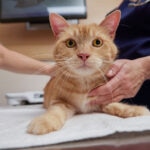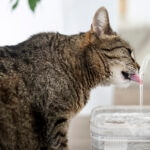Is Your Cat Not Peeing? It Could Be a Serious Problem—Here’s What to Do
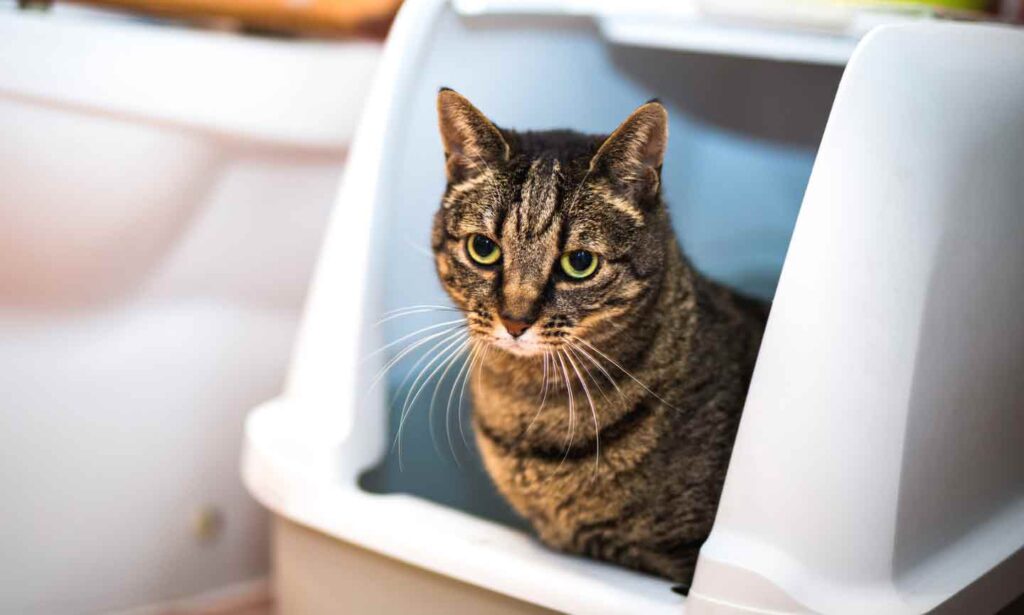
Photo by iStock.com/borchee
Cats are typically fastidious about their potty habits—so if you’ve noticed a change in how much they’re using the litter box, consider it a red flag. How much a cat pees can vary, depending on how much they drink, the type of food they eat, their activity level and their health status. But while some variation in the amount of urine a cat produces is normal, big changes—like if you think your cat is not peeing much at all—can indicate serious health risks. We’re breaking down everything you need to know below.
Important Note: Take your cat to the vet immediately if you think your cat is having a lot of trouble peeing or is not able to pee at all— even if you have to go to an emergency vet. Your cat might have a life-threatening urinary blockage or another serious medical condition.
Is My Cat Peeing Enough?
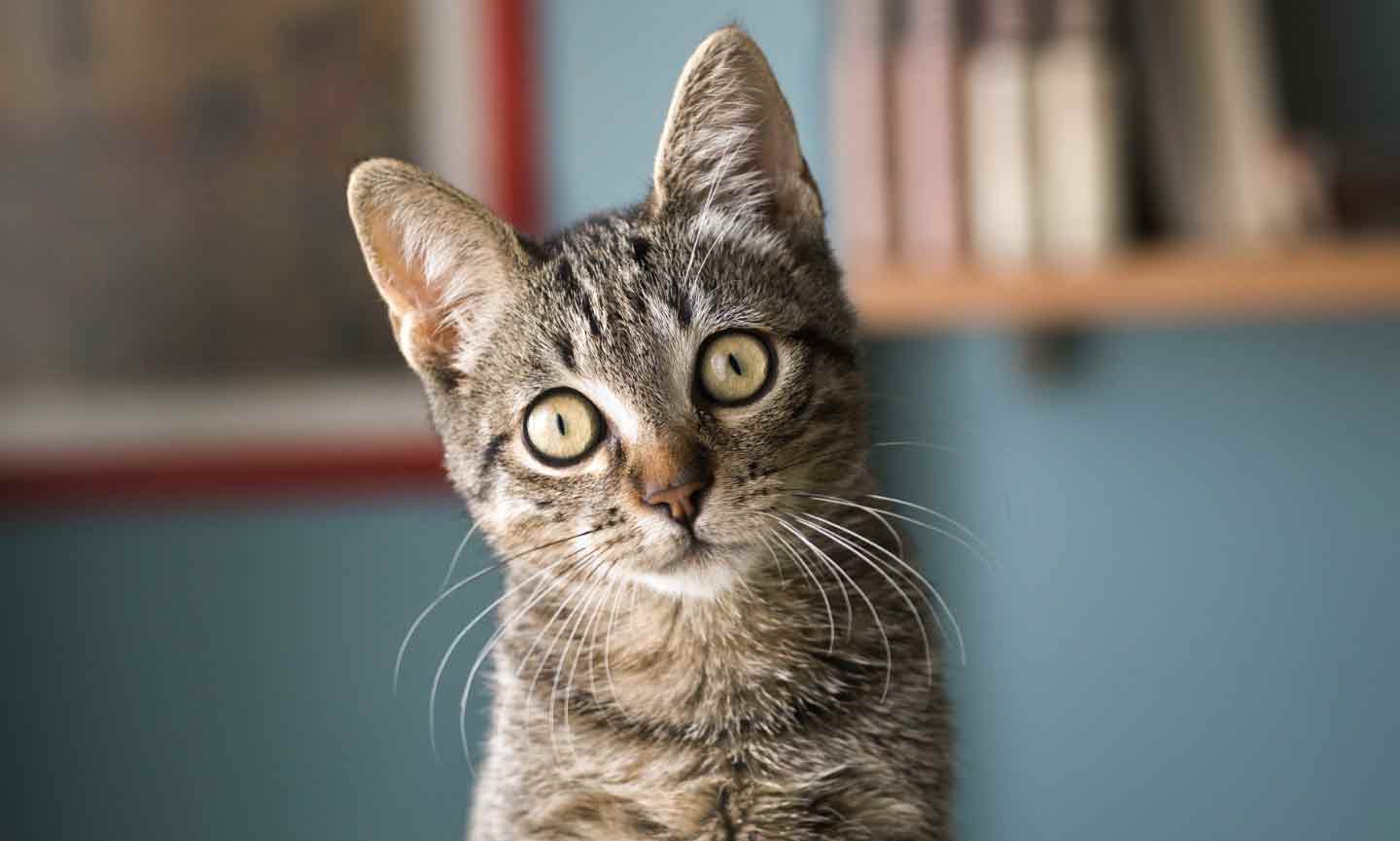
iStock.com/Ramonespelt
Domestic cats evolved from desert-dwelling ancestors, so their bodies have the natural ability to survive on less water than other animals. This is an important survival trait when drinking water is hard to find!
As a result, cats naturally produce less pee than you might expect. Veterinarians typically expect cats to produce around 20-45 ml of urine per kilogram of their body weight per day as the normal range for urine production in cats. Use this chart as a handy guide to normal urine production in cats.
| Weight | Amount of Urine |
|---|---|
| 5 pounds | 1.5–3.5 ounces |
| 8 pounds | 2.5–5.5 ounces |
| 10 pounds | 3–7 ounces |
| 12 pounds | 3.7–8.2 ounces |
| 15 pounds | 4.5–10.5 ounces |
How to Tell How Much Your Cat Is Peeing
Of course, most cat parents aren’t in the habit of measuring how much their cat pees. More often, we develop a feel for their litter box habits. Here are some questions to ask yourself:
- Is my cat visiting the litter box more or less frequently than normal?
- Do they spend more or less time in the litter box when they are there?
- When I clean my cat’s litter box, are there more or fewer clumps of urine?
- Are the urine clumps bigger or smaller than normal?
- Am I finding blood in my cat’s litter box?
- Is my cat urinating outside the litter box?
If you answered “yes” to any of the above questions, make an appointment with your veterinarian. These are significant changes in your cat’s litter box habits that could indicate a medical issue.
Signs Your Cat Is Having Trouble Peeing
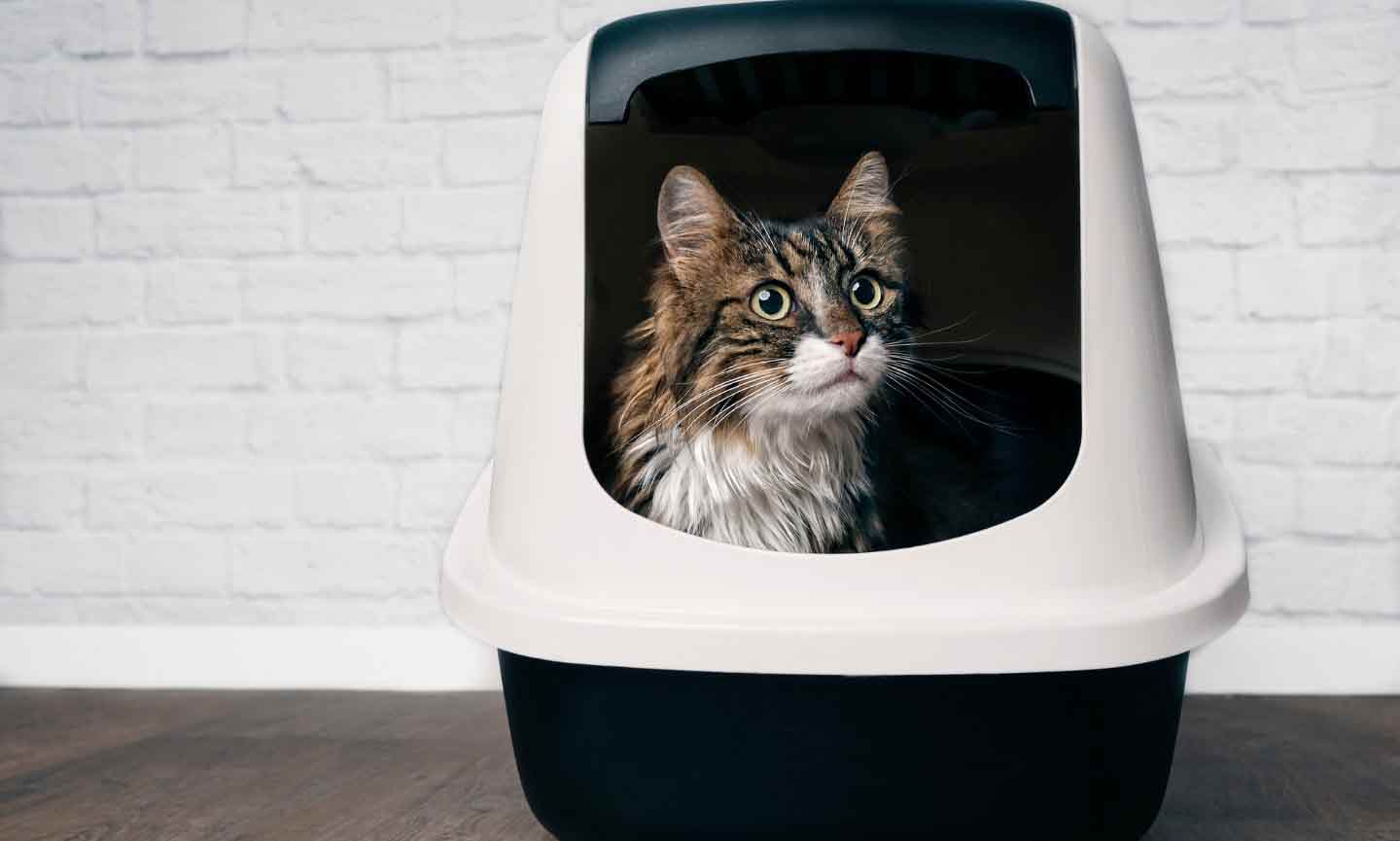
iStock.com/Lightspruch
Signs that a cat is having trouble peeing include:
- Producing small amounts of urine frequently
- Straining to urinate
- Urinating outside the litter box
- Licking at their urinary opening
- Producing urine that contains blood
- Discomfort when urinating
- Abdominal pain
- Becoming unable to urinate at all, which is a life-threatening emergency
Cats who are having trouble urinating may also have a poor appetite, be lethargic, vomit, and either seek out attention or withdraw from the family.
Any changes in your cat’s urinary habits should be brought to your veterinarian’s attention, but if they are subtle, you probably aren’t dealing with an emergency. However, as we noted above, if you think your cat is having a lot of trouble peeing, or worse yet, may not be able to pee at all, you need to get them veterinary care immediately, even if you have to go to an emergency vet, because urinary blockages in cats can be life-threatening.
Common Urinary Problems in Cats
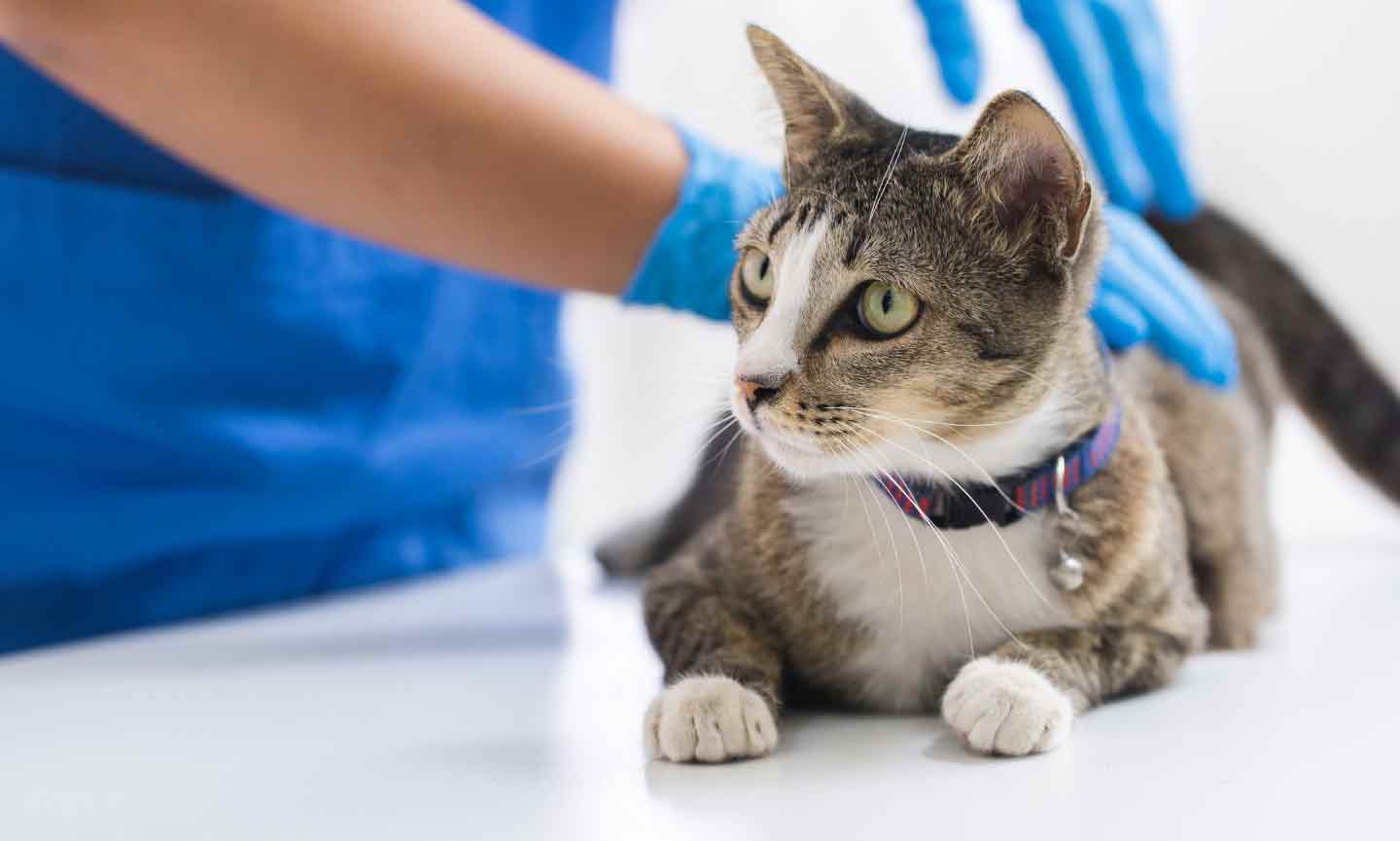
iStock.com/Chalirmpoj Pimpisarn
Here are the most common urinary issues a veterinarian will look for when a cat is having trouble urinating:
Urinary Blockages
First, let’s deal with the worst-case scenario: urinary blockages. Also called urinary obstructions, these blockages are usually caused by a mixture of protein, crystals or small stones that become lodged within the urethra (the tube leading from the urinary bladder to the outside of the body). Tumors or involuntary muscular contractions called urethral spasms can also block urine flow from the bladder.
Is My Cat at Risk? Neutered male cats have very narrow urethras, which explains why they are more likely to become blocked than female cats or unneutered males.
Treatment: Get to a veterinarian immediately if your cat is trying to pee but can’t get much out. If necessary, go to an emergency vet because, without treatment, your cat’s bladder may rupture.
Treatment for a blocked cat usually includes:
- Placing a urinary catheter to unblock the urethra and drain urine from the bladder
- Fluid therapy
- Pain relief
- Hospitalization for close monitoring.
Your veterinarian will also try to determine what caused the urinary blockage in the first place, and may recommend treatment options to resolve that issue as well.
Feline Idiopathic Cystitis
Feline idiopathic cystitis (also called FIC, idiopathic feline lower urinary tract disease, or FLUTD) is very common in cats. It results in bladder inflammation, but possible causes haven’t been identified. Stress seems to play a big role in the development of FIC.
Is My Cat at Risk? FIC is more common in cats with an indoor-only lifestyle.
Treatment: Your vet may recommend:
- Medications and nutritional supplements that relieve pain, inflammation and anxiety
- Increasing water intake (feeding canned cat food only, for example)
- Keeping litter boxes impeccably clean
- Providing ample opportunities for exercise, play and mental stimulation
- Maintaining a lifestyle that is as stress-free as possible.
Urinary Crystals and Stones
Crystals can form in cat urine when the urine is very concentrated or when the substances that make up the crystals are present at high levels. With time, crystals can clump together and form stones. Several types of crystals and stones can form in a cat’s urine, but calcium oxalate and struvite are the most common.
Is My Cat at Risk? Any cat can develop urinary crystals and stones, but they become more common once cats are middle-aged or older. Calcium oxalate stones may be a bigger problem for males of certain breeds, including the following types of cats, especially if they are overweight:
- Burmese
- Devon rex
- Himalayan
- Persian
- Ragdoll
- Siamese
- Tonkinese
Struvite stones can affect all breeds and both sexes.
Treatment: Struvite urinary crystals and stones can usually be dissolved by feeding a canned prescription diet that contains low levels of the substances that make up the crystals and makes a cat’s urine acidic and diluted. If a cat’s diet can’t be changed, a veterinarian can prescribe a medication that will acidify the urine.
Surgery is usually necessary to remove calcium oxalate and other types of bladder stones.
Cancer
Tumors within a cat’s urinary tract can also make it hard for a cat to pee by partially or fully blocking the flow of urine out of the bladder or through the urethra.
Is My Cat at Risk? Urinary tract cancer can affect all breeds and both sexes of cats. It is quite rare but does become more likely the older a cat gets.
Treatment: Treatment for urinary tract cancers may include:
- Surgery
- Chemotherapy
- Radiation therapy
- Immunotherapy
- Comfort care
Urinary Tract Infections
Urinary tract infections (UTIs) can also affect your cat’s peeing habits. They are usually caused by bacteria in the urinary tract.
Is My Cat at Risk? UTIs are rare in young, healthy cats. They become more likely as cats get older and if a cat has an underlying medical issue like diabetes or kidney disease.
Treatment: For a routine bacterial infection of the bladder, a veterinarian may simply prescribe an antibiotic that has a good chance of working and schedule a follow-up visit to make sure the infection is clearing up. If your cat has a more complicated bladder infection, the vet may send off a urine culture and sensitivity test so they can pick the most effective antibiotic.
Most of the medical issues that cause urinary problems in cats produce similar symptoms. To get to the bottom of what might be going on, a veterinarian will usually have to:
- Ask questions about your cat’s symptoms and lifestyle at home
- Perform a physical exam
- Take a urine sample and perform a urinalysis
- Run some bloodwork
- Take abdominal X-rays or an ultrasound exam
- Run other tests based on the specifics of your cat’s case
How to Prevent Cat Urinary Problems
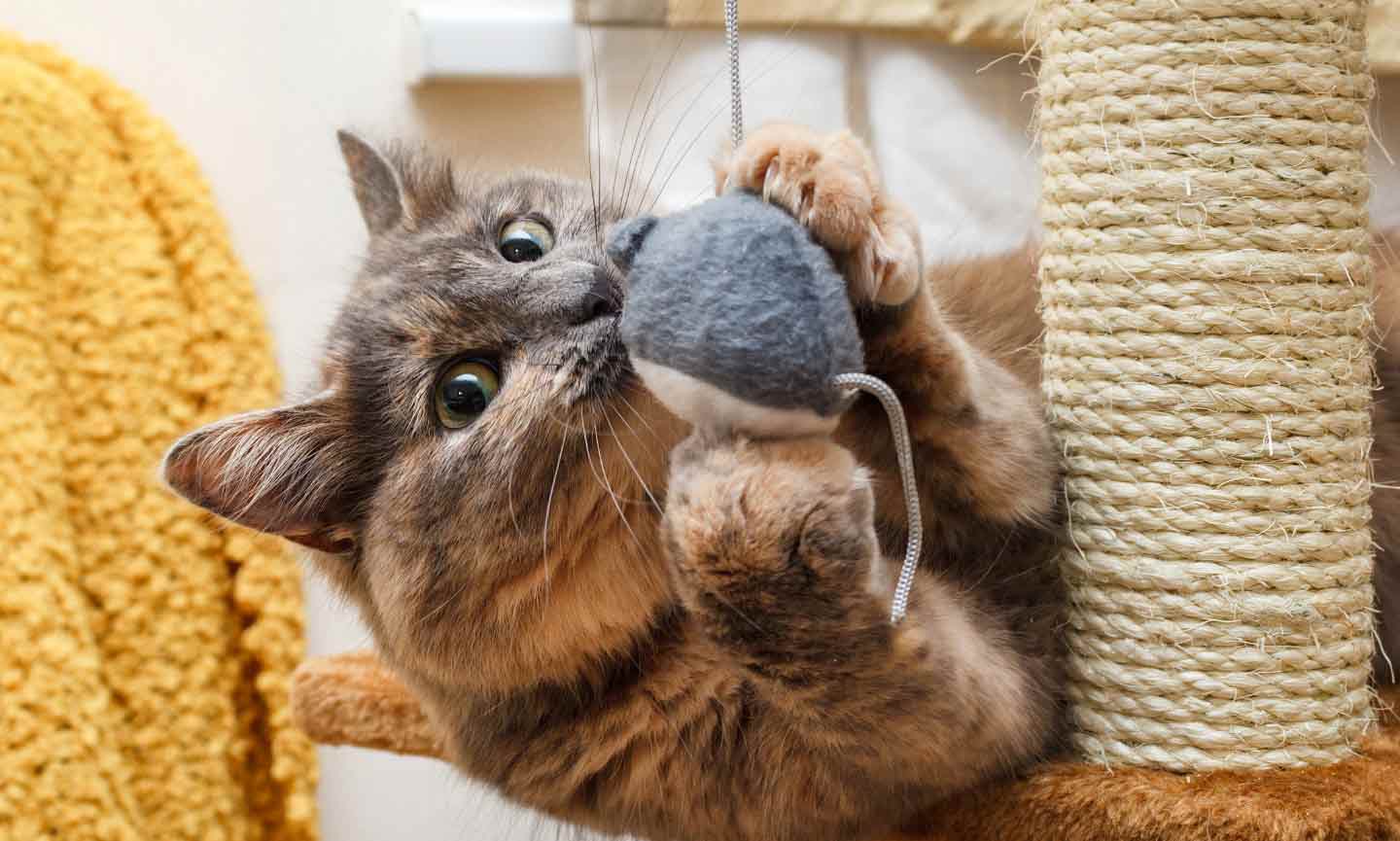
iStock.com/Socreative
The best way to keep your cat’s urinary tract healthy will depend on the specifics of their case, but the following recommendations are safe and appropriate under almost every circumstance.
Reduce Your Cat’s Stress
Stress seems to play a big role in determining which cats develop FIC or become blocked. Focus on your cat’s environment to determine what might be causing stress. If your cat is routinely fighting with housemates, find a way to keep them separate. Provide elevated wall shelves and pathways so cats can feel comfortable monitoring and moving around their “habitat.”
Provide Exercise and Enrichment
Cats who live indoors are often bored, so it’s important to give them lots of opportunities to exercise and use their minds, such as:
Play with your cat every day
Keep a variety of cat toys on hand and rotate through them regularly.
Have lots of cat scratchers available
Place a cat perch in a window
Consider using a food puzzle so your cat has to work for at least one of their meals each day.
Keep Their Litter Box Clean
A dirty litter box is stressful for many cats. This can discourage them from urinating—and an empty bladder is a healthy bladder. Scoop out your cat’s litter box at least once a day and dump it, wash it out and refill it with clean litter at least once a month. Always have at least one more litter box in your home than the number of cats that live there. And accessibility matters! Don’t put litter boxes in hard-to-reach parts of your home.
Keep Your Cat Hydrated
Cats need to stay well-hydrated to keep their urine dilute. Feeding canned cat food is the easiest way to do this, but having several water bowls throughout your home and keeping them clean and filled with fresh water can also help. Consider purchasing a kitty water fountain if your cat likes to drink from faucets.
Your veterinarian can recommend any other treatments, such as medications, supplements, or specific cat foods, that will help your cat avoid urinary issues and other pet health problems.

